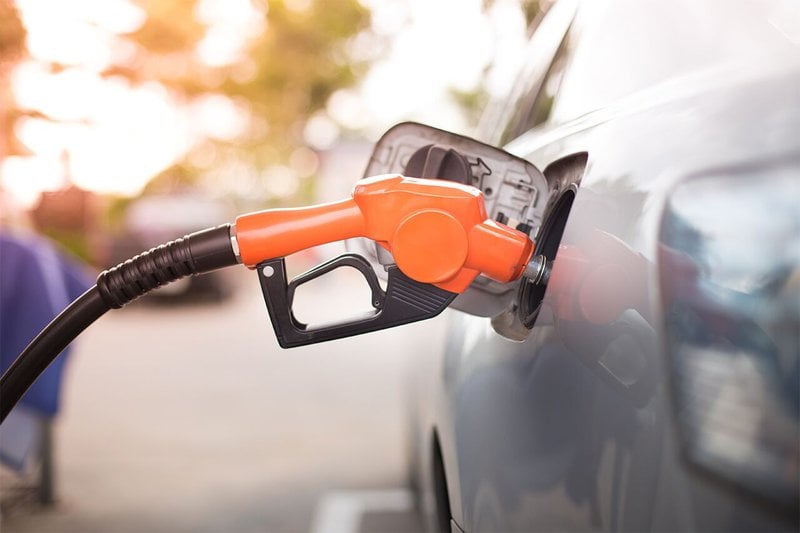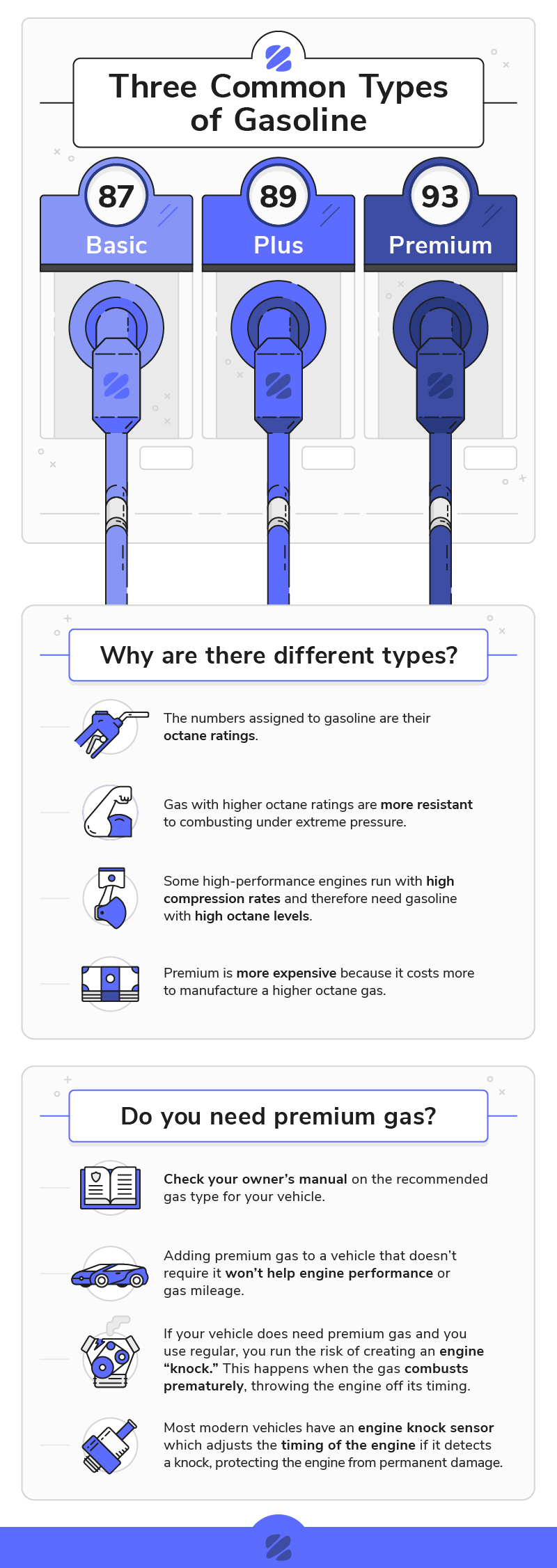
Gasoline is used to power many things, including our vehicles. We all understand the basics, but have you ever wondered what’s really happening to gasoline as it travels through your car and why it's essential to the function of your vehicle? We’re here to help you understand.
You may have noticed when selecting your gas type the numbers differentiating classifications of gas: usually 87, 89 and 91. These are octane ratings.
Octane ratings refer to how resistant the fuel type is to combustion by pressure. To put it another way, pressure creates heat, so the more pressure you add, the hotter something gets. If you put gas under enough pressure, the heat caused by the pressure will make the gasoline combust.
The higher the octane rating, the more resistant the fuel is to spontaneously combusting under pressure. This is important for high-performance, high-pressure engines. You don’t want the gasoline to prematurely ignite in the cylinder and throw off the four-stroke cycle of the engine. Using higher octane gas in your engine won’t help it to run better unless you have a high-performance, high-pressure engine, in which case high-octane gasoline is necessary.

What is ethanol?
Ethanol is an alternative alcohol fuel that is made from plant materials, usually corn and sugar. Ethanol is added to gasoline because it's a cost-effective way to raise the octane rating of gas, and because the ethanol burns cleanly, reducing emissions.

Americans use over 360 million gallons of gasoline per day. Gasoline is one of the most energy-rich fuel sources we have. One gallon of gasoline contains about 132 megajoules of energy. The next best liquid fuel source, ethanol, contains about 121 megajoules per gallon. If you’re wondering about electric cars or other alternative fuel, ponder this: a lithium battery has an energy density of 1.8 megajoules per kilogram, compared to gasoline's energy density of more than 40 megajoules per kilogram.
No matter how you fuel your car, it’s always important to stay safe on the road. Practicing safe driving habits and having good auto insurance saves you time and money, so you can afford those rising gas prices.
Sources
U.S. Department of Energy | How A Car Works | U.S. Energy Information Administration
Ready to start saving?
